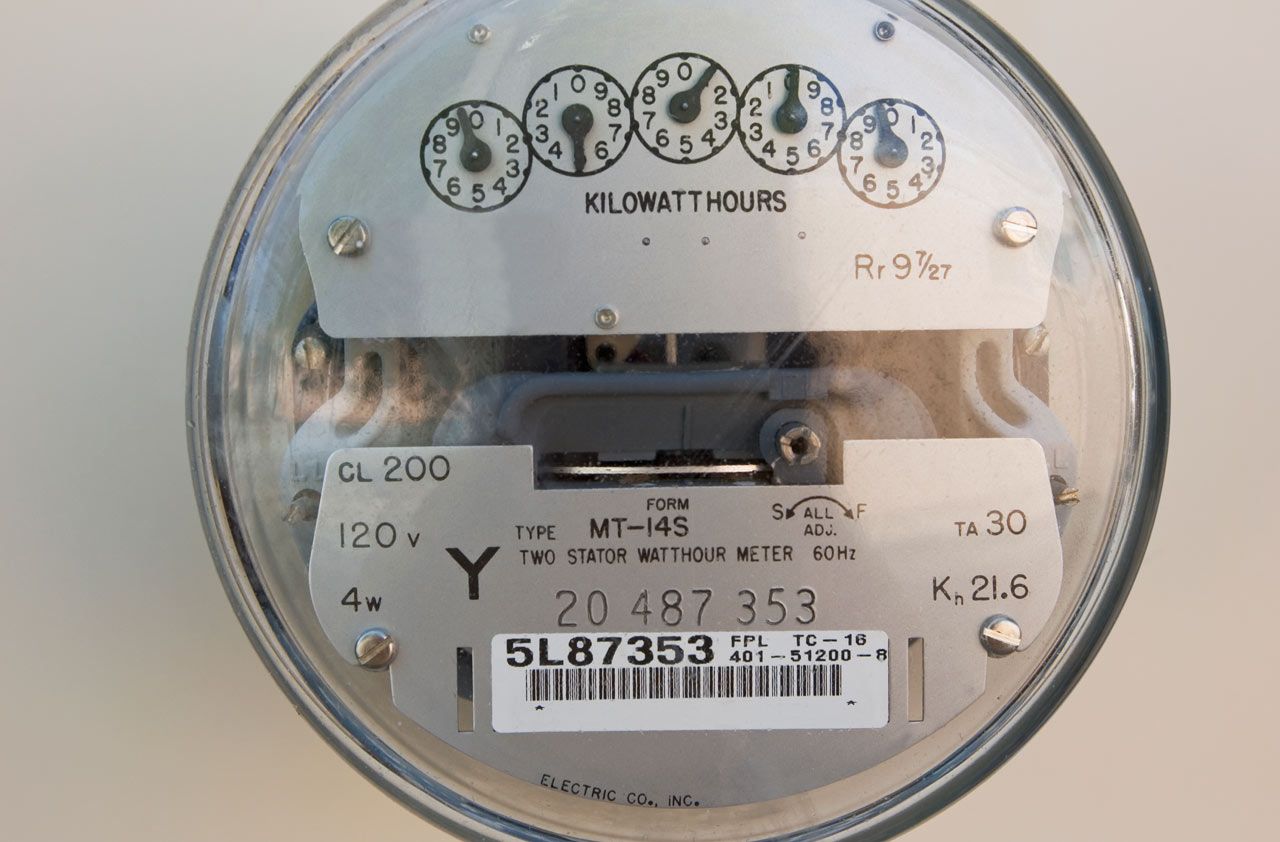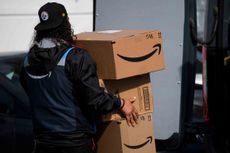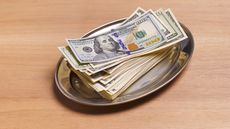How To Save Money on Energy Bills When You're Away From Home
Check out these seven easy steps that can save money on energy bills while you're away from home.


One surefire way to save money on energy bills is to take these simple steps before you leave on vacation. It may feel daunting to add yet one more task before you leave town — from stopping the mail and making sure your pets are taken care of to securing your home from intruders. But one thing you don’t want to worry about is spending more on utilities than necessary while you’re away.
Save money on energy bills the easy way
During an especially warm summer, homes can consume around 82% of their normal energy even when unoccupied — averaging an unnecessary expense of about $590. And, since a typical electricity bill can average about $173 a month, up from $168 last year, it would help to know these seven easy steps you can take to save on your energy bills.
1. Program your thermostat
Setting your thermostat at a higher or lower temperature when you leave can save you money on your utility bill. If you have a programmable or smart thermostat, set it to ‘vacation’ mode. Adjusting your manual unit a few degrees up or down can also have a significant impact. In fact, according to Duke Energy, a change of just three degrees for 24 hours a day can save 30% on your energy costs. Or, if you’re not leaving for an extended time and the forecast calls for mild weather, consider turning the system off.

Sign up for Kiplinger’s Free E-Newsletters
Profit and prosper with the best of expert advice on investing, taxes, retirement, personal finance and more - straight to your e-mail.
Profit and prosper with the best of expert advice - straight to your e-mail.
2. Unplug appliances and electronics
When electrical appliances, "energy vampires," are plugged into an outlet, they use energy even when turned off, which can account for up to 10% of your energy bill. To save money, unplug all large and small electrical appliances, such as your computer, cable box, coffee maker, microwave, printer, television and toaster.
3. Turn off or turn down the water heater
“Water heating accounts for up to 25% of the energy a home consumes, and you won’t even be there to use it,” says Mark Feygin, founder and CEO of PowerSetter. “Switch off the water heater at the breaker while your home is vacant … but remember to leave yourself a note to turn it back on again when you return.” Turning off your water heater also prevents any unexpected malfunctions while away, like a water leak and flooding.
Many water heaters also have a vacation setting, usually found on the temperature dial. Adjusting it to 50 degrees Fahrenheit or the lowest setting available can help you save money while away.
4. Put lights on timers
Although simply turning off the lights saves you money while on vacation, many people choose to keep the lights on for security reasons. Instead of leaving the lamps lit all day and night, install timers and take the worry out of how much energy you’re using. Keep in mind that while incandescent bulbs can get hot and overheat, LED lights save more energy and can be left on for extended periods of time without overheating, according to energy.gov.
5. Keep window coverings half-way or all the way closed
Your house will stay cool, and you’ll save energy by keeping window shades and blinds closed when the temperature climbs. Feygin recommends keeping window coverings closed while away. “If the sun has had weeks to raise the temperature in your home uninterrupted, it’s going to take a whole lot of work for your air conditioner to cool it once you get back.” Plus, the afternoon sun can make your home hot and unbearable for pets if left alone.
Similarly, Feygin adds, “Reflective film can stop heat from entering your home by bouncing back the sun’s rays, making it easier to maintain a comfortable temperature. Less heat buildup while you’re away means less reliance on air conditioning once you return.”
However, you may not want to advertise you are physically away, and closed curtains can give the impression that nobody is home. So, before you leave on an extended vacation, the experts at Duke Energy suggest leaving your curtains or blinds halfway open and investing in a smart security system.
6. Keep your refrigerator half-full
A fully stocked refrigerator stays colder than an empty one. Although you may want to remove all the food from your fridge when leaving town, keeping your refrigerator and freezer at least half full is actually more energy efficient. But if you just can’t fathom the thought of coming home to sour milk, fill your fridge and freezer with full water bottles or ice trays, and adjust the thermostats on your refrigerator and freezer to a higher setting — 38 degrees F for the refrigerator and 5 degrees F for the freezer. If you leave for more than four weeks, you will probably want to empty and unplug your fridge.
7. More ways to save while away
Before you walk out the door, add these other “to dos” to your list and save even more on your energy bill.
- Turn off both ceiling and personal fans.
- Drain and winterize your hot tub, or unplug the hot tub heater.
- Turn off or lower the temperature on the heater for your swimming pool, but leave the pool pump on.
- Unplug your window air conditioner.
- Unplug any landscaping water features if not absolutely needed, or set them to come on less often or for a shorter period of time.
Related Content

To continue reading this article
please register for free
This is different from signing in to your print subscription
Why am I seeing this? Find out more here
Get Kiplinger Today newsletter — free
Profit and prosper with the best of Kiplinger's advice on investing, taxes, retirement, personal finance and much more. Delivered daily. Enter your email in the box and click Sign Me Up.

For the past 18+ years, Kathryn has highlighted the humanity in personal finance by shaping stories that identify the opportunities and obstacles in managing a person's finances. All the same, she’ll jump on other equally important topics if needed. Kathryn graduated with a degree in Journalism and lives in Duluth, Minnesota. She joined Kiplinger in 2023 as a contributor.
-
 Best U.S. Cities for Renters 2024
Best U.S. Cities for Renters 2024What are the best U.S. cities for renters? Charleston, NC, Atlanta, GA, Sarasota, FL, McKinney, TX and Scottsdale, AZ lead the pack, according to a recent RentCafe report.
By Kathryn Pomroy Published
-
 Workplace Benefits Can Lighten the Load for Working Parents
Workplace Benefits Can Lighten the Load for Working ParentsFrom wellness programs, help with saving for retirement, college and emergencies and possibly even financial advice, your workplace benefits are there for you.
By Kate Winget Published
-
 10 Money-Saving Hacks for Amazon Shoppers
10 Money-Saving Hacks for Amazon ShoppersThere are many money-saving hacks for Amazon shoppers if you know how to use them.
By Kathryn Pomroy Published
-
 Amazon Prime Day vs Walmart Deal Days: Which Is Better?
Amazon Prime Day vs Walmart Deal Days: Which Is Better?From household goods and clothing to electronics and toys, which retail giant is the clear winner? The answer may be both.
By Kathryn Pomroy Published
-
 Take a Mid-Year Review of Your Health Insurance Coverage
Take a Mid-Year Review of Your Health Insurance CoverageWhether it's monitoring your deductible or using a health savings account, here are the best ways to maximize use of your health insurance coverage
By Kimberly Lankford Published
-
 Now's a Great Time to Build a Bond Ladder
Now's a Great Time to Build a Bond LadderNavigating how to proceed with new or rollover money can be daunting. Here are some of the best ways to guarantee a high yield to maturity and full recovery of principal.
By Jeffrey R. Kosnett Published
-
 Get 5 Months of Amazon Music Unlimited for Free with Amazon Prime Day
Get 5 Months of Amazon Music Unlimited for Free with Amazon Prime DayAmazon Prime Day 2024 has a free five-month trial of Amazon Music Unlimited.
By Charlotte Gorbold Published
-
 What's the Most Popular Investment? These Investors Might Be Missing Out
What's the Most Popular Investment? These Investors Might Be Missing OutThe most popular investment may shock you and it has widely underperformed other asset classes. Here’s what you need to know.
By Joey Solitro Published
-
 Seven Best Vacation Spots to Beat the Summer Heat
Seven Best Vacation Spots to Beat the Summer HeatThe best vacation spots to beat the summer heat and embrace the comparatively cool include Alaska, Reykjavík, British Columbia, and Stockholm.
By Erin Bendig Published
-
 Softer June Jobs Report Raises Rate-Cut Bets
Softer June Jobs Report Raises Rate-Cut BetsJobs Report Slower hiring and a rise in the unemployment rate up the odds of the Fed easing more than once before year-end, experts say.
By Dan Burrows Published